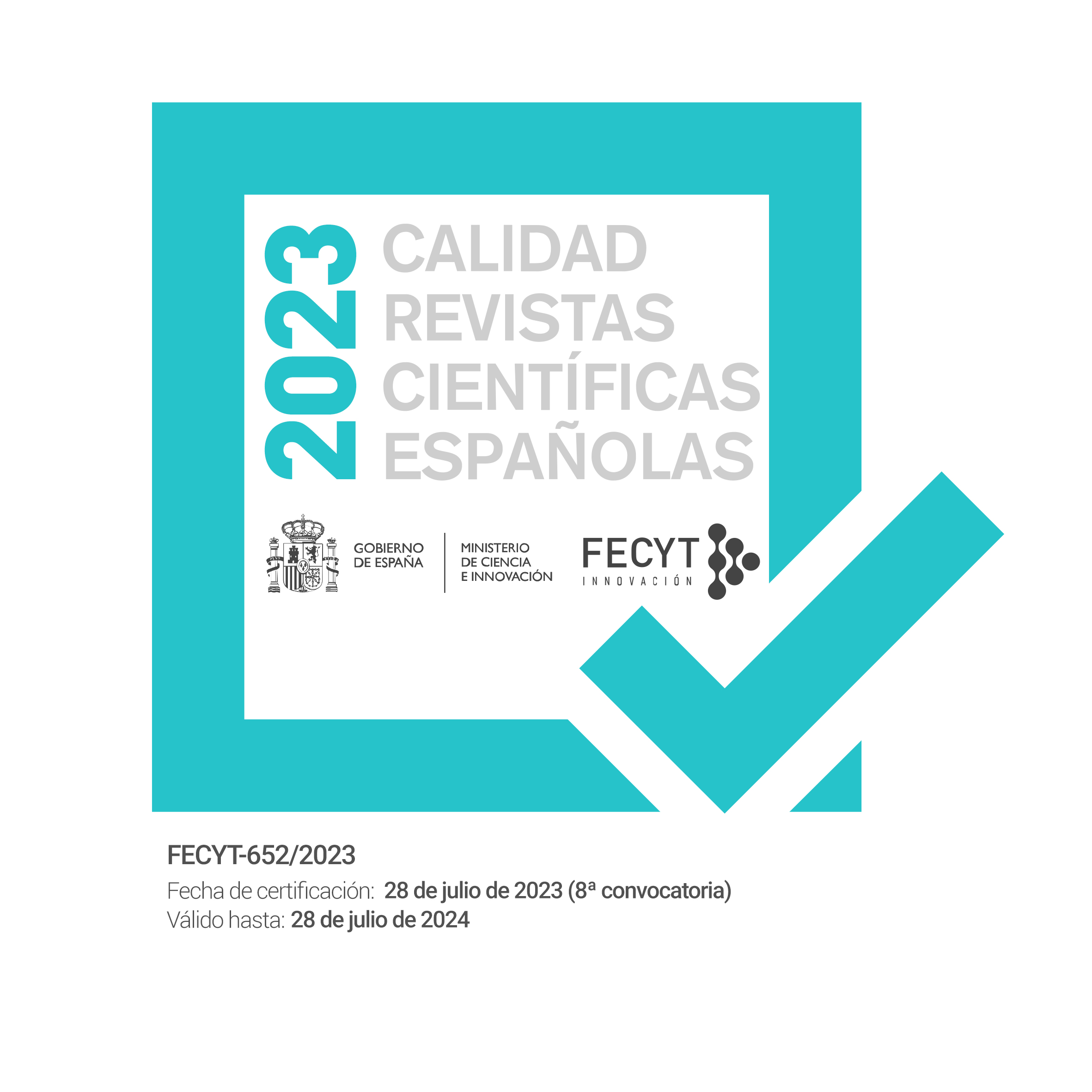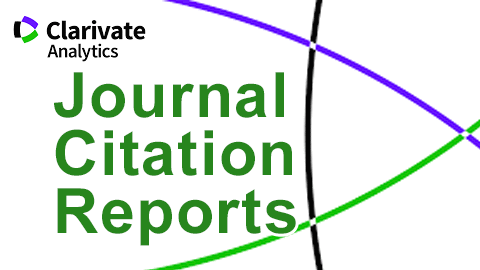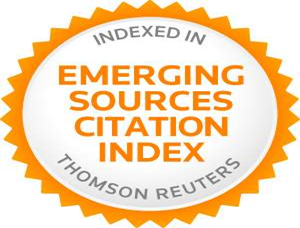Spanish Studentsʼ Reflections on the Importance of Written and Spoken Skills in their EFL Classes at High School and at University
Resumen
Abstract
Nowadays, thanks to the introduction of modern approaches to language teaching with an emphasis on communication and a focus on the learner, teachers are expected to help students develop their competences in both receptive and productive skills. However, few studies have been carried out in Spain to verify whether students feel they have enough chances to write and speak in the classroom. This paper aims at describing and comparing the attention that is paid to the different skills at pre-university and university levels. A number of students were asked to answer some questions on the importance that, in their experience, is given to each language area in their EFL classes, assessment system and teaching materials. The results indicate that spoken skills and cultural aspects continue to be undervalued in our country.
Key words: written skills; oral skills; Spanish EFL students; high school; university
Resumen
Hoy en día, gracias a la introducción de técnicas modernas para la enseñanza de idiomas que ponen un énfasis en la comunicación y en el aprendiz, se espera que los profesores ayuden a sus alumnos a desarrollar tanto sus competencias receptivas como productivas. Sin embargo, pocos estudios se han realizado en España para verificar si los estudiantes creen que tienen suficientes oportunidades para escribir y comunicarse oralmente dentro del aula. Este estudio tiene como objetivo principal describir y comparar la atención que se le presta a las diferentes destrezas a nivel universitario y en niveles educativos inferiores. Se les pidió a un número de estudiantes que contestasen a unas preguntas acerca de la importancia que se le da según su experiencia a cada área de la lengua en sus clases de ILE, sistema de evaluación y materiales didácticos. Los resultados indican que las destrezas orales y los aspectos culturales, continúan siendo infravaloradas en nuestro país.
Palabras clave: destrezas escritas; destrezas orales; estudiantes de ILE, instituto; universidad
Citas
Aleksandrzak, M. (2011). Problems and challenges in teaching and learning speaking at advanced level. Glottodidactica, 37, 37-48.
Alonso, R. (2014). Teaching speaking: an exploratory study in two academic contexts. Porta Linguarum, 22, 145-160. Retrieved from
http://www.ugr.es/~portalin/articulos/PL_numero22/10%20%20ROSA%20ALONSO. pdf
Amengual, M. (2009). Does the English test in the Spanish university entrance examination influence the teaching of English? English Studies, 90 (5), 582-598. doi: 10.1080/00138380903181031
Amengual, M. (2010). Exploring the washback effects of a high-stakes English test on the teaching of English in Spanish upper secondary schools. Revista Alicantina de Estudios Ingleses, 23, 149-170. Retrieved from
https://rua.ua.es/dspace/bitstream/10045/17429/1/RAEI_23_09.pdf
Baker, A. (2011). Pronunciation Pedagogy: Second Language Teacher Cognition and Practice. PhD dissertation, Georgia State University, USA. Retrieved from http://scholarworks.gsu.edu/cgi/viewcontent.cgi?article=1017&context=alesl_diss
Bartolí, M. (2005). La pronunciación en las clases de lenguas extranjeras. Phonica, 1, 1-27. Retrieved from http://www.publicacions.ub.es/revistes/phonica1/PDF/articulo_02.pdf
Calvo, Y.J. (2016). The Teaching and Learning of English Pronunciation in Spain. An Analysis and Appraisal of Studentsʼ and Teachersʼ Views and Teaching Materials. PhD dissertation, Universidad de Santiago de Compostela, Spain. Retrieved from http://dspace.usc.es/handle/10347/13862
Chela, B. (2008). Hacia la optimización de la enseñanza de la pronunciación de un segundo idioma. En R. Monroy y A. Sánchez-Pérez (Eds.), 25 años de Lingüística en España: hitos y retos (pp. 285-293). Murcia: Editum, Servicio de Publicaciones de la Universidad de Murcia.
Council of Europe. (2001). Common European Framework of Reference for Languages: Learning, Teaching, Assessment. Cambridge: Cambridge University Press.
Coyle, D., Hood, P. & Marsh, D. (2010). CLIL: Content and Language Integrated Learning. Cambridge: Cambridge University Press.
Englander, M. (2010). The Nature and Nurture of Learners. Bloomington: AuthorHouse.
European Commission (2005). First European survey on language competences. SurveyLang. European Commision, Education and Training. Retrieved from http://ec.europa.eu/languages/policy/strategic-framework/documents/language-survey-final-report_en.pdf
Hornero, A.M., Mur, P. & Plo, R. (2013). Oral skills in the spotlight: EFL in secondary education in a Spanish local context. Synergy, 9 (2), 111-124. Retrieved from http://synergy.ase.ro/issues/2013-vol9-no-2/06-ana-maria-hornero-pilar-mur-duenas-ramon-plooral-skills-in-the-spotlight-efl-in-secondary-education-in-a-spanish-local-context.pdf
Martínez-Asis, F. (2004). Estudio de una intervención pedagógica para la enseñanza de la pronunciación inglesa en 4º curso de la ESO. PhD dissertation, Universidad de Murcia, Spain. Retrieved from http://hdl.handle.net/10803/10812
Martínez-Flor, A., Usó, E. & Alcón, E. (2006). Towards acquiring communicative competence through speaking. In E. Usó & A. Martínez-Flor (Eds.), Current Trends in the Development and Teaching of the Four Language Skills (pp. 139-157). Berlin: Mouton de Gruyter.
Mora, J. (2006). Age effects on oral fluency developments. In C. Muñoz (Ed.), Age and the Rate of Foreign Language Learning (pp. 65-88). Clevendon: Multilingual Matters Ltd.
Plo, R., Hornero, A.M. & Mur, P. (2014). Implementing the teaching/learning of oral skills in secondary education in Aragón: gauging teachers’ attitudes, beliefs and expectations. International Journal of English Studies, 14 (1), 55-77. doi: 10.6018/ijes/14/1/175041
Rubio, F. & Schwarzer, D. (2011). Teaching practices in order to promote verbal interaction. Pre-service teachers’ reflections: a preliminary survey study. Brics Journal of Educational Research, 1 (2), 67-73. Retrieved from http://bricsjer.com/index.php/brics/article/view/1
Descargas
Publicado
Número
Sección
Licencia
Reconocimiento – No comercial (CC BY-NC). Bajo esta licencia el usuario puede copiar, distribuir y exhibir públicamente la obra y puede crear obras derivadas siempre y cuando estas nuevas creaciones reconozcan la autoría de la obra original y no sean utilizadas de manera comercial.
Los autores retienen todos sus derechos de publicación y copyright sin restricciones.









